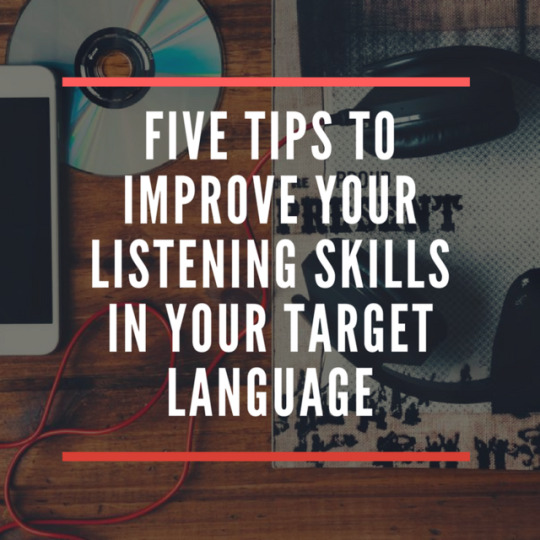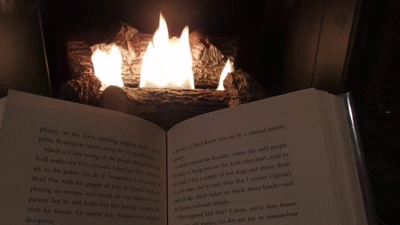a studyblr. filled with study tips, language learning, and ap self studying
Don't wanna be here? Send us removal request.
Text
Hey, it’s been a couple months! I am afraid I am not doing well this year. Depression is kicking my butt, and I am desperately trying to get my grades up in school. I have also sadly fell behind on my language studying.
0 notes
Photo

beige is becoming one of my favourite colours ♡
🎶 lover, where do you live? - highasakite
ig: studynoctis
2K notes
·
View notes
Photo

Productive sunday i think lol My insta: @hsclub.png
4K notes
·
View notes
Text
Sorry for my abscence everyone! I am officially back now that school is starting again! I did pretty well last year on my AP exams, passing two out of three on them!
1 note
·
View note
Photo

We’ve all been there. Whether it’s a commercial on the radio or TV, or eavesdropping on the subway, our ears perk up when we hear someone speaking in our target language. Depending on your level, you may find it hard to understand what they’re saying. Here is a list of some tips and resources that can help you improve your listening skills
1. Do a LOT of active listening.
One of the most useful exercises that one can do when practicing a new language is active listening. Search for an audio file, an audio book, a podcast, or a Youtube video (TED Talks are particularly useful) with a transcription. Listen to the audio file and follow along closely with the accompanied text. The app Lingq has dialogues with both audio and texts. Try listening to the audio without the text first, and then go back and listen while following the text. Which words did you recognize? Which words did you have trouble recognizing?
Making strong connections between the sound of the word and how it is written will help you recognize it in the future. Listen to the word, read it, write it, and speak it. The “Easy Languages” series on Youtube covers multiple languages, and has subtitles in both your target language and English. Follow along while paying close attention to the words and the sounds that correspond to them. Rewind and listen multiple times if you have to!
2. Don’t let frustration get the best of you. Give your brain time to digest the sounds and the melody of the languages. Getting frustrated only sets up a “mental block” that will prevent you from making any progress. Take a deep breath, put your headphones in and enjoy the learning process.
3. Listen to something that interests you. You might feel more encouraged to actively listen to something that actually interests you. This is a great way for your brain to become accustomed to the sounds of certain topic-specific words that you might use or hear in the future. n your target language, search “videos about _____ with a transcription,” or “podcasts with transcription.” Search for a topic that interests you and start listening! Here is a website that has TONS of material for a multitude of languages: http://www.languagelinksdatabase.com/free-language-resources/
4. Listen to music. Listening to music is a great way learn new vocabulary. Although the words are being sung and not spoken, it is still a great way for your brain to internalize the sounds of the language, and to learn new vocabulary as well! Ask some native speakers to recommend you some songs. Search for the lyrics on Google and follow along!
5. Read lips. Whether you’re watching a show on Netflix, or speaking with someone face-to-face, reading will help both your listening skills and your pronunciation. Applying your knowledge of the way that sounds are made to the movements of the other person’s lips will help your brain distinguish the words that they’re saying. This will help you pick out words that you might not have recognized otherwise!
Don’t forget — exposure is key! Do as much active listening as possible, and supplement it with passive listening. Radios, podcasts, the news, music, and just chatting with native speakers can help. Good luck with your language learning journey, and feel free to share any other methods for improving listening skills.
1K notes
·
View notes
Text
Youtubers Italiani 📹

Premessa agli Italiani che vedranno questo post: se volete consigliare qualche Youtuber anche voi, fatelo nei commenti (però non inviatemi domande!) 👍
Hi everyone! Let me apologize for not updating this blog at all, but I had to study hard to pass and be able to take my final exams, which I’ll be doing during these weeks.
Here’s the ultimate source of Italian YouTube channels which will help you improve your level. Enjoy!

Per video divertenti:
iPantellas
Mark The Hammer
Violetta Rocks
ScuolaZoo
Casa Surace
Stefano Piffer
MrMassy81
Nirkiop
Francesco Posa
The Frenchmole
Daniele doesn’t matter
Michael Righini
Croix89
Boban Pesov
Orion
Cartoni Morti
Scottecs

Per video particolari:
Yotobi
Dario Moccia
The Show
Parliamo di videogiochi
Fraffrog
Osservatrice scaltra
Shanti lives
L'inspiegabile
Horror Maniaci

Canali di bellezza:
Clio Make-up
Marta Cerreto
N O E M I S
MrDanielMakeup
Make-up delight
Carmela D'Ascoli
Adriana Spink
SweetMakeup
Beautesserie
Loretta Grace

Canali di viaggio:
Seoul Mafia
Marco Togni
China Time
Human Safari
In viaggio col Tubo
CostansProduction
Gabriele Saluci

Canali trash / Youtube Merda:
Claudio Dodoi
RT Poop
Firestewie Ciak
Mastercast
Nocoldiz
CristianIce
MrPoldoAkbar
Segreto13

Canali d'informazione:
Byoblu
La7 Attualità
SocialTv Network

Scuola:
Treccani Scuola
Mi offro io
Ennio Guglielmetto (filosofia)
Studenti.it
Elia Bombardelli (matematica)
255 notes
·
View notes
Text
Cozy vocabulary in Greek

original post by @malteseboy
το φιλί – kiss
η ταινία – movie
η αγκαλιά – cuddle
το πουλόβερ – sweater
Το μαξιλάρι – pillow
ο καφές – coffee
οι κάλτσες – socks
το βιβλίο – book
η άνεση – comfort
η κουβέρτα – blanket
ο υπνάκος – nap
Το τζάκι – fireplace
η γάτα – cat
η ζεστασιά – warmth
τα αστέρια – stars
το τσαι – tea
η αγκαλιά – hug
το κερί– candle
Απαλός – soft
ευαίσθητος/ λεπτεπίλεπτος – delicate
γλυκός – sweet
Άνετος – comfortable
ζεστός- warm
Φιλώ – to kiss
αγκαλιάζω – to hug
Φροντίζω – to take care (of smb.)
Ξαπλώνω – to lie down
αγκαλιάζω – to cuddle
διαβάζω – to read
κοιμάμαι – to sleep
Ξεκουράζομαι – to rest
1K notes
·
View notes
Text
The Uses of Ya - Flavoring Particles
The word ya is a very useful word in Spanish to know, partly because it’s useful in time expressions, a very common adverb, but also because it’s a very common flavoring particle.
A flavoring particle is a word or part of speech that is added to a sentence that influences the tone. In the case of ya, it is one that evokes “rushing” or “moving” or “lateness”, in addition to its literal meaning.
The word ya is often translated as “already” and it’s very common in all tenses, but in the sense of “already” it’s more often found in commands or the preterite tense. While meaning “already”, ya can mean “now” as in “right now”.
Colloquially, ya gets used to imply that something needs to be sped up or hurried along. It implies either an exclamation point or impatience.
Although I’m not 100% on this, my belief is that ya comes from the interjection <<Ea>> which is the “Yah!” someone says to a horse as in “giddy-up!” The phrase ea is still in existence but it’s a bit dated, but it can be used in terms of “come on!” or something along those lines.
Its more academic meaning is related to ea. The Spanish/Latin Ea is related to English’s “Yea”, meaning “Indeed”. In Spanish, this sort of thing is translated as ya que meaning “since” or “given that”. So when you hear a phrase in English like, “Yea, though I walk through the valley of the shadow of death…” It’s more or less related to this affirmative, moving along sort of idea.
Although it can be used in academic settings, ya is very much colloquial, so it’s used in some more idiomatic and useful Spanish phrases.
¡Hazlo ya! - Do it already!
Lo hago ya. - I’m doing it now.
Lo hago ya mismo. - I’m doing it right now.
Ya lo hice. - I already did it.
Ya es hora. - It’s time now.
Ya iba siendo hora. - Well, it’s about time.
Tenemos que irnos ya. - We have to go now.
Desde ya, somos amigos. - From now on, we’re friends.
¡Basta ya de excusas! - No more excuses!
¡Ya basta! - Enough already!
Ya me harto. - I’m fed up.
Ya estoy harto de eso. - [idiomatic expression] I’m sick and tired of this.
Ya que… - Since… / Given that…
Tiene la ciudadanía colombiana ya que es colombiano. - He has Colombian citizenship since/given that he’s Colombian.
Mejorar nuestra tecnología es muy importante ya que estamos en el siglo XXI [ventiuno]. - Improving our technology is important given that we’re in the 21st century.
Ya eres demasiado tarde. - You’re too late now.
Ya hablaremos. - We’ll talk soon.
Es una mentira ya lo sé. - It’s a lie, I just know it.
Ya veo. - I can see that.
Ya lo veo. - I get it.
Ya se ve… - [idiomatic expression] It’s obvious that… [lit. “One can (immediately) see that…”]
Ya lo verás. - You’ll see.[implied “soon” or “in the near future”; as a potential threat/promise.]
Ya lo sabía. - I already knew that.
Hace ya tiempo que hablamos. - It’s been a long time since we spoke.
Ya te lo dije. - I already told you. [it might be “I just told you” depending on the context]
Mi abuelo pasaba ya de los ochenta. - My grandfather was already well into his 80s.
Ella ya tiene 22 (años). - She’s already 22. / She just turned 22.
Ya es historia. - [idiomatic expression] It’s ancient history. [lit. “it’s already history”; ya here indicates “far into the past”]
Ya lo he oído todo. - I’ve heard it all already.
Ya dice mucho. - [idiomatic expression] It’s very telling. [lit. “it already says a lot”]
Ya es otro cantar. - [idiomatic expression] And now it’s time for something completely different. [ser otro cantar means “a different matter”; the ya implies “moving on”]
Ya me imagino. - I can imagine. / I get it.
Ya empezaron. - They started already.
¡Voy, ya voy! - Coming, I’ll be right there!
Ya me voy. - I’m leaving now.
Ya me iba. - I was just leaving.
Ya me había ido. - I had already gone.
Ya me fui. - I already left.
¡Ya regresé! - I’m back (now)!
¡Ya estoy aquí! - I’m here (now)!
669 notes
·
View notes
Photo

This is for everyone who likes me likes politics and likes languages. If you too are into italian politics, you’ll know that Sergio Mattarella, the Italian president, on Sunday night vetoed a controversial Sergio Savona to serve as the country’s finance minister and Luigi Di Maio called for Mattarella to be impeached. And there is a lot of drama. Here’s some vocabulary for you.
(il) capo dello stato - head of state
(il) ministro - minister
(il) ministero - ministry
(il) presidente - president
(la) camera di consiglio - council chamber
(la) crisi - crisis
(il) politico - politician
(il) contratto - agreement
(il) finanziamento - financing
(la) tassa - tax
(il) veto - veto
(il) candidato - candidate
(il) premier - prime minister
(gli) elettori - voters
(il) governo - government
(il) debito pubblico - public debt
(il) mutuo - loan
(il) crollo - colapse
(la) campagna elettorale - election campaign
(la) consultazione - consultation
(la) corruzione - corruption
(il) parlamento - parliament
(il) dibattito - debate
(la) alleanza - alliance
euroscettico - euro-sceptic
(il) deputato - member of the parliament
Feel free to correct me!
62 notes
·
View notes
Text
How to read 20 minutes a day in your target language(s)
Why you should do it?
Story time: A few years ago, I had to prepare an exam that was quite hard (it takes you 2 years to prepare it, and you basically study more than 12 hours a day). I had to study around 10 different subjects, among which English and Spanish. So when our English teacher told us that to make progress we had to read in English for 20 minutes every day, we felt like it was going to be impossible. However, most of us decided to give it a try and we didn’t regret it: the results were super good and we all made a lot of progress very quickly ! (I guess the key here is immersion) So here’s how to read in your target language for 20 minutes every day :)
When to read ?
Finding 20 minutes each day to read can be quite hard. You can try to do it at night before going to sleep, which can be a good idea for some of people, but you might be tired, not very focused on your reading or want to watch a movie instead. And if you’re a party animal you might miss a lot of days ;) What I did was reading while I took my breakfast, for maybe 5 or 10 minutes. But I often didn’t have the time to read or to take a breakfast at all so I found out that the best method for me was to read while I was on the bus. I had 25 minutes of bus every morning so that was the perfect time to read some English. I would just download a few articles on my phone, sit down and read :) Sometimes I would also read on the way back. Some other methods that might work for you could be reading while brushing your teeth, waiting for the bus, waiting for your episode to download, waiting for the water to boil, during lunch or dinner etc. If you can find only 5 minutes four times a day, you’ve done it ! :)
What to read ?
I personnally mainly read newpapers articles because I had to focus on the news for my exam. But it’s even better if you vary what you read: it can be a book, a magazine, some poetry, lyrics, browsing social networks in your target language, fanfiction… whatever you like :) For example, I really love surfing so I still read the World Surf League articles in English and Portuguese almost every day. The more you vary your resources, the more vocabulary you’ll learn and the more you will be immersed in the language !
Also an alternative that my English teacher gave us was to read for 15 minutes and then listen (to a podcast, an audiobook, the radio, the news etc…) for 10 minutes.
Good luck and trust me you should try it! :)
1K notes
·
View notes
Video
youtube
[For this UYLD, I felt like the world had to know that Italian!Thomas O’ Malley is called Romeo, is extremely Roman and has truly become an icon. You’ll thank me later]
Pe’ arrivacce qui da Roma ho fatto l'autostop I hitchhiked my way here from Rome E ‘n Francia è già ’m ber pezzo che ce sto And I’ve been in France for quite a while now Ma pure da emigrato mica so’ cambiato But even as an emigrant, I haven’t changed a bit Io so’ Romeo, er mejo der Colosseo* I’m Romeo, the top [cat] of the Colosseum
Io fermo nun ce sto, proprio nun me va I can’t keep still, it’s just not my thing Se domani qui sarò, oggi chi lo sa! Who can say today if I’ll be here tomorrow! Forse un po’ m'acchitterò e me n'andrò in città Maybe I’ll get all dressed up and go downtown E poi laggiù tanta scena farò And I’ll make such an impression there Ogni gatta che me vedrà dirà: Every kitty that sees me will say: “Ma che ber micione, che simpaticone! “What a handsome cat, such a funny guy! Quello è Romeo, er mejo der Colosseo” That’s Romeo, top [cat] of the Colosseum”
Si cambio so’ guai, sto bene come sto Woe betide if I change, I’m fine the way I am Io nun me lego mai, catene nun ce n'ho I never tie myself to anyone, I ain’t got no chains Aggregate si vvòi, Dio sa ‘ndove finirai! Tag along if you will, God knows where you’ll end up! In Cina, in Perù, o a Timbuctù In China, in Peru, or in Timbuktu Ma nun baccajerai, vedrai But you won’t complain, you’ll see
Chi tante storie fa a prega’ nun sto I ain’t begging to join me those who make a fuss Tutto quello che me va con un gesto c'ho With a flick of my paw I get everything I want Penso sempre che l'avi miei, tra ruderi e mausolei, I’ve always thought that my ancestors, between ruins and mausoleums, Sapevano già fasse rispetta’ e considera’ da nobili e plebei Already knew how to command respect and consideration from nobles and commoners alike! Se tanto me dà tanto, godo e me ne vanto If that’s the case, I’ll enjoy it and brag D'esse’ Romeo, er mejo der Colosseo About being Romeo, the top [cat] of the Colosseum C'avrò er busto ar Pincio** e ar museo! I’ll get a bust on the Pincian hill and in the museum!
*Arguably Rome’s best-known monument. **A famous hill, on top of which are located some gardens lined with a series of marble busts featuring distinguished Italian personalities.
488 notes
·
View notes
Photo

Taffo sempre sul pezzo.
629 notes
·
View notes
Text
Childhood Italian vocabulary🌠
I wanted to create a vocabulary list in Italian but I had no idea where to start, so I asked @hillanguages to tell me which kind of topics she would like to know more about, and here it is! :-) l’infanzia (f.) - childhood il bambino - child il giocattolo - toy il gioco - game il seggiolone - high chair il ciuccio - pacifier il pannolino - diaper il fasciatoio - changing table il bavaglino - bib la scuola - school l’asilo nido (m.) - nursery school la scuola materna - kindergarden la merenda - snack giocare a… - to play… nascondino - hide and seek acchiapparello - play tag l’amico immaginario - imaginary friend balbettare - to babble la tutina - romper suit la matita colorata - colored pencil il pastello - crayon invitare gli amici a casa - to have friends over la fiaba - fairytale raccontare una storia - to tell a tale il leccalecca - lollipop la gita scolastica - school trip andare in gita scolastica - to go for a school trip il compagno/la compagna di classe - classmate i cartoni animati - cartoons l’orsacchiotto (m.) - teddy bear il pupazzo/ il peluche - stuffed animal la pappa - din-dins la filastrocca - nursery rhyme il dente da latte - baby tooth
557 notes
·
View notes
Photo

BaBa Dum! A Fun Vocabulary Game
Vocabulary can be a difficult aspect of learning any language. There are so many different words to know and it’s hard to know words for seemingly random items. That is where BaBa Dum is a great resource!
BaBa Dum is a game based learning website where you have several different options to play with. The options include:
Choosing Picture from Word
Choosing Word from Picture
Choosing Picture from Sound
Typing Word from Picture
And a mixture of everything!
Obviously there are several options open for whatever method suits you.
Right now, BaBa Dum has a fairly extensive language list available, including:
British English
American English
Chinese
French
German
Italian
Greek
Portuguese
Japanese
Lithuanian
Polish
Russian
Spanish
Swedish
It also has a Japanese Kana learning game!
Overall, this website seems to be very useful, and is definitely worth checking out!
4K notes
·
View notes
Text
25 Swedish verb opposites
Inspired by the Norwegian list by @lingolden
att attackera | att försvara: to attack | to defend
att öppna | att stänga: to open | to close
att börja | att sluta: to begin | to end
att ha sönder | att laga: to break | to fix
att älska | att hata: to love | to hate
att gå | att springa: to walk | to run
att ge | att ta: to give | to take
att kasta | att fånga: to throw | to catch
att köpa | att sälja: to buy | to sell
att komma | att gå: to come | to go
att låna ut | att låna: to lend | to borrow
att skratta | att gråta: to laugh | to cry
att läsa | att skriva: to read | to write
att leva | att dö: to live | to die
att lyckas | att mislyckas: to succeed | to fail
att tappa bort | att hitta: to lose | to find
att smälta | att frysa: to melt | to freeze
att prata | att lyssna: to speak | to listen
att äta | att dricka: to eat | to drink
att fråga | att svara: to ask | to answer
att stå | att sitta: to stand | to sit
att ta på sig | att ta av sig: to put on | to take off
att tillåta | att förbjuda: to allow | to forbid
att tvätta | att torka: to wash | to dry
att vinna | att förlora: to win | to lose
446 notes
·
View notes
Photo


01.05.16 {16 days until exams} Done 4 past papers today, in every single one I’ve been one mark off an A*… It’s no longer funny
7K notes
·
View notes

